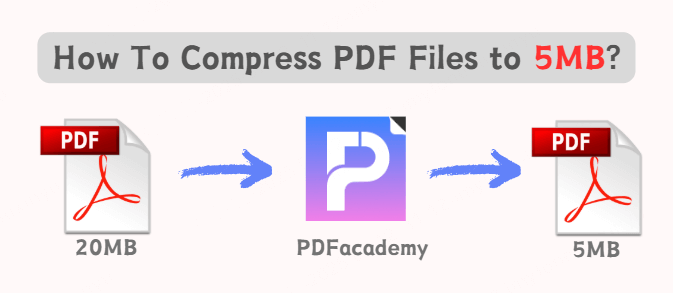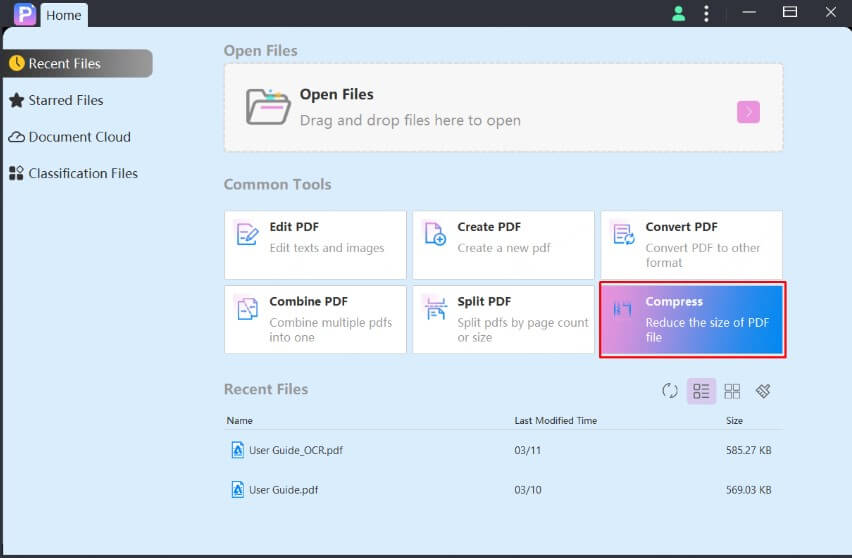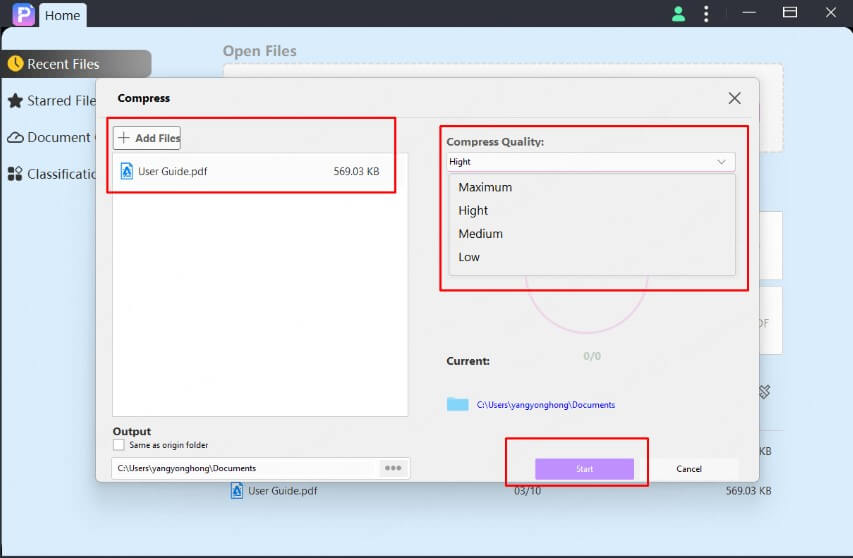How To Easily Compress PDF Files to 5MB?
Category: Edit PDF

6 mins read
PDF files are great for sharing documents, but large file sizes can cause problems—especially when uploading to websites with strict limits. Many government portals, schools, and job applications only accept PDFs under 5MB.
If your file is too large, don’t worry. This guide will show you quick and easy ways to compress your PDF to 5MB or less without losing quality.

In this article:
Part 1: What Affects PDF File Size?
Several factors can significantly increase the size of a PDF file:
- Images and High-Resolution Graphics: Large or uncompressed images (like PNG or TIFF) can quickly inflate file size, especially in image-heavy documents.
- Embedded Fonts and Multimedia: Including custom fonts, videos, or audio increases the size of the PDF, even if the content looks minimal.
- Scanned Documents vs. Digital PDFs: Scanned pages are stored as images, which are much larger than text-based digital PDFs created from Word or Excel files.
- File Optimization Level: Poorly optimized PDFs may retain unnecessary metadata, unused elements, or redundant objects that bloat the file size.
Part 2: How to Quickly Compress PDF Files to Under 5MB
If you need a reliable, offline solution to reduce your PDF size, iMyFone PDFacademy makes it simple. With just a few clicks, you can compress your PDF files to 5MB or less without compromising on quality.
Step 1 Open PDFacademy and Select “Compress”
Launch the PDFacademy software. On the home screen, locate the “Compress” button under the Common Tool section and click it.

Step 2 Add Your PDF and Choose Compression Level
Select the PDF file(s) you want to compress. Then, pick a compression quality—High, Medium, or Low—depending on your target size and quality preference.

Step 3 Click “Start” and Save Your Compressed File
Hit the “Start” button to begin compressing. Once complete, preview the file size and save it to your desired location.
Part 3: Tips to Ensure Your PDF is Under 5MB
Use these simple techniques to reduce file size without sacrificing readability or quality:
1 Use JPEG Instead of PNG or TIFF
When adding images to your PDF, always convert them to JPEG format first. JPEGs are compressed and much smaller in size compared to high-resolution PNG or TIFF files. This helps keep your document lightweight while maintaining decent image clarity.
2 Avoid Ultra-High DPI When Scanning
Scanning documents at 300 DPI is more than enough for text and basic graphics. Higher DPI settings (like 600 or 1200) create unnecessarily large image files. Stick to moderate resolution to keep your scans sharp but compact.
3 Remove Unnecessary Content and Fonts
Clean up your PDF by deleting extra pages, redundant images, or embedded fonts that aren't needed. Custom fonts and unused design elements can bulk up your file. Simplifying the content helps reduce the overall size significantly.
4 Use Grayscale Instead of Full Color
If color isn't essential, convert your images and scanned pages to grayscale. This cuts down file size dramatically, especially for text-heavy or print-oriented documents. It’s an easy tradeoff when color isn’t part of the message.
Part 4: How to Check Your PDF File Size
Before and after compression, it’s important to check your PDF file size to ensure it meets the 5MB limit. Here are a few easy ways to do it:
On Windows: Right-Click > Properties
Locate your PDF file, then right-click on it and select “Properties.” In the pop-up window, you’ll see the file size listed under the “General” tab. This gives you an exact size in MB or KB.
On Mac: Use Preview
Open your PDF in Preview, then go to the Tools menu and select “Show Inspector” (or press Command + I). The Info panel will display the file size along with other document details.
Within the Software (e.g., PDFacademy)
Most PDF tools, including PDFacademy, show the file size before and after compression. After compressing, preview the new size to confirm it’s below 5MB before exporting or saving.
Conclusion
Reducing your PDF file size to under 5MB is easier than you might think. With the right tools, you can compress documents quickly—without sacrificing quality or readability. For those who value privacy and offline control, desktop software like PDFacademy offers a secure, reliable solution. If you need something fast and convenient, online compressors work well for simple tasks.
No matter your needs, try compressing your PDF today—you’ll be surprised how fast and effortless it can be.














